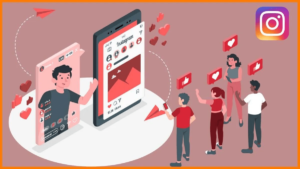Startup with a Limited Budget? Here are Your Options

Launching a new business is easy, said no one ever. It is a tiresome, exhausting and very lonely phase. It is the time when a great idea is going to meet the world and probably change the way people think. It is not impossible, because millions of humans have done it in the past and so can you. Startups usually have a limited budget, and even if they secure a funding opportunity, there is always the pressure of doing well in the future.
Who would have thought that the idea of the iPhone we flaunt today was born in the garage that belonged to Steve Job’s parents? He continued to work his way through and change the course of technology to alter the way we watch movies, take phone calls and purchase music.
“Remembering that you are going to die is the best way I know to avoid the trap of thinking you have something to lose. You are already naked. There is no reason not to follow your heart.” — Steve Jobs
Even after his passing, Apple continues to make new rounds in the tech world with a new device every year. Startups need to secure their idea and execute it carefully to nurture its growth. There are many ways to do this, and luckily, most of them don’t require a lot of bucks.
Use Social Media:
The online world is full of low budget options for marketing and promotion, but don’t rely solely on those. There is a whole different offline world out there which can provide your business with a lot of free promotion.
You can arrange a meetup of bloggers and key influencers at a café and talk about your business ideas and what you want to achieve from them. You can offer to speak at nearby events and teach people something new related to your field. In the end, you can hand out brochures about your business.
Souvenirs, giveaways and brochures do have an effect on the offline audience and you can spread the word around by mobilizing people. You can hold an event at your workplace or do something unique that spreads the news about your work. You can make product props and ask people to get photos taken with these. Then you can post about these events online to share it with the internet audience.
Go Offline:
The online world is full of low budget options for marketing and promotion, but don’t rely solely on those. There is a whole different offline world out there which can provide your business with a lot of free promotion.
You can arrange a meetup of bloggers and key influencers at a café and talk about your business ideas and what you want to achieve from them. You can offer to speak at nearby events and teach people something new related to your field. In the end, you can hand out brochures about your business.
Souvenirs, giveaways and brochures do have an effect on the offline audience and you can spread the word around by mobilizing people. You can hold an event at your workplace or do something unique that spreads the news about your work. You can make product props and ask people to get photos taken with these. Then you can post about these events online to share it with the internet audience.
Blog About Your Niche:
With a startup comes a business website, and building a website is not that difficult nowadays. Websites are the online face of a company, so business owners try hard to keep websites as amazing as possible. Blogging is something which many business owners overlook. Blogging can give your business that extra exposure, which people can find attractive. In business blogs you don’t have to be formal and fret over selling. Blogs are lighter and are maintained by many companies to record their journey and share it with people.
“We wanted to run our own business, and be in control of our own destiny. We had no idea where it would lead us, but wherever it was, we knew it had to be better than feeling bored and unfulfilled. We were ready for an adventure.” — Tony Hsieh
Here are some great tools which can be your right hand in performing many important business-related tasks:
Hotjar:
If you are a savvy startup owner, you would know all about your user preferences. It is good to keep compiling data about user activity on your website. Hotjar is a conversion rate optimization tool that identifies elements on your website that convert and those that don’t. There are heat maps based on cursor movements, funnels, forms and lots more in this tool.
Boost:
Social channels are the hottest places to run campaigns on, so why not use a tool which makes it even easier to sell? Boost helps you buy and sell by using one #hashtag on these mediums. If you have a brand or a campaign, you can devise a unique hashtag for your product and post it on social channels so that people can find you easily.
Buyers will only have to sign up and upload their payment details and shipping information one time to buy using the unique hashtag. This clever tool will not only set your business apart but will also make your business seem more credible on social media.
Automated Spreadsheets:
You may need to take help from a tool which does all the data recording for you without you manually spending time on making spreadsheets. Also, if you are advertising on multiple platforms at the same time, like Google Adwords, LinkedIn, Instagram, Twitter, etc, then you will get a cross-channel reporting tool.
RTB Media has created automated spreadsheets that can record many tasks like email optimization, optimization advice and alerts. You can try their monthly campaign templates, breakdown based on platforms, financial reporting based on platform and client comparison analysis. You will get a detailed report without dedicating extra time to deciphering the analytics.
Additional Tips:
- Tell people why you entered into this specific business. Tell them your story via blog posts or social media posts. People like hearing stories of struggle they can relate with.
- Everywhere on the internet where there is a niche-related community, become a part of it. Sites like Quora are the best for this purpose. Talk about what you do and how you do it. It builds a reputation.
- You can also share your story online with HARO (help a reporter out).
- Send promo codes and irresistible giveaways. The Dubai Bazaar is a shopping platform which not only offers new deals every day, but also puts time frames so that people feel the urge to buy discounted products before they vanish. It involves more psychological targeting than promotion and it doesn’t count much!
- Pay per click ads are beneficial, especially when Facebook can offer them to you for as low as $5 a day.
AUTHOR BIO
Erica Silva is a blogger by choice. She loves to discover the world around her. She likes to share her discoveries, experiences and express herself through her blogs.
Find her on Twitter:@ericadsilva1






